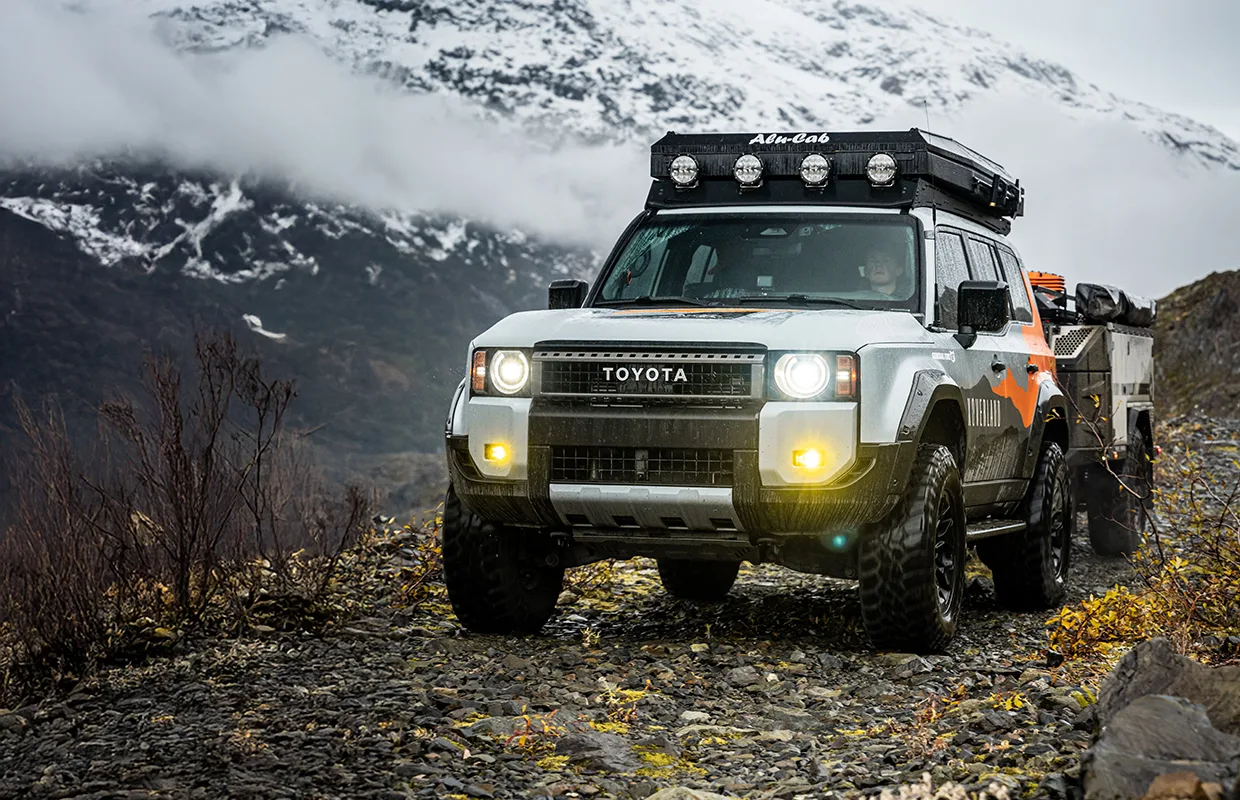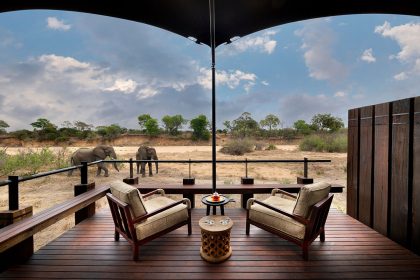No stranger to adventurous and market-leading innovation, we catch up with Alu-Cab, whose leadership team updates us on the company’s latest pursuits, customer-centric approach, and continuous expansion efforts over the last two years.
BUILT FOR THE WILD
Taking advantage of beautiful, vast terrains and unforgettable landscapes, the adventure vehicle accessories sector has helped explorers across the globe make the most of the great outdoors.
At the forefront of the sector’s manufacturing capabilities and international supply chain is Alu-Cab who, since we last spoke, has steadily expanded its capabilities to capture the waves of an undulating market over the last 24 months.
“The main challenge we’ve seen is the slowdown of the highs experienced post-COVID-19 pandemic, which saw many people wanting to get out and about,” opens Warwick Leslie, CEO.
As a result, a multitude of the company’s competitors have been unable to weather the storm.
Yet, amid such difficulties, there has been burgeoning interest in the tent adventure category specifically, encouraging Alu-Cab to evolve, diversify, and evaluate other areas of the market, thus maintaining its industry-leading position.
NAVIGATING CHANGE
Since 2023’s closure, Alu-Cab has continued its pursuit to streamline and amalgamate its manufacturing operations, particularly as it navigates a changing industrial landscape.
“We’ve made strides in consolidating our factories and are finally in the last stages of consolidation, where we’ll be operating out of three units as opposed to 15,” Leslie highlights.
By refining its operations and manufacturing processes, the company has also been able to focus on expanding the business and distinguishing itself in the sector, emphasised by its growing operational space and push towards innovation.
“Alu-Cab has moved from 16,000 square metres (sqm) under roof to 24,000 sqm and added technology to our processes to remain competitive without upping prices for the end user,” he details.
With increasing capability comes greater product development, where the company has spent considerable time honing efficiencies and new market offerings.
Indeed, Alu-Cab has added notable products to its portfolio in recent months, including expansions to its top-tier ModCAP range, helping the company to keep its stock-keeping units (SKUs) down whilst also reducing volume.
“This allows us to offer entry-level premium offerings within a family of products, specifically for the camping industry.
“We’ve also expanded our range of soft goods, bags, and accessories, providing a lower price entry point into the brand for newcomers,” Leslie outlines.
Moreover, Alu-Cab is on track to achieve a major long-term target upon the completion of its automated powder coating plant next month.
“Having everything under one roof in our new warehouse is a huge milestone,” he prides.
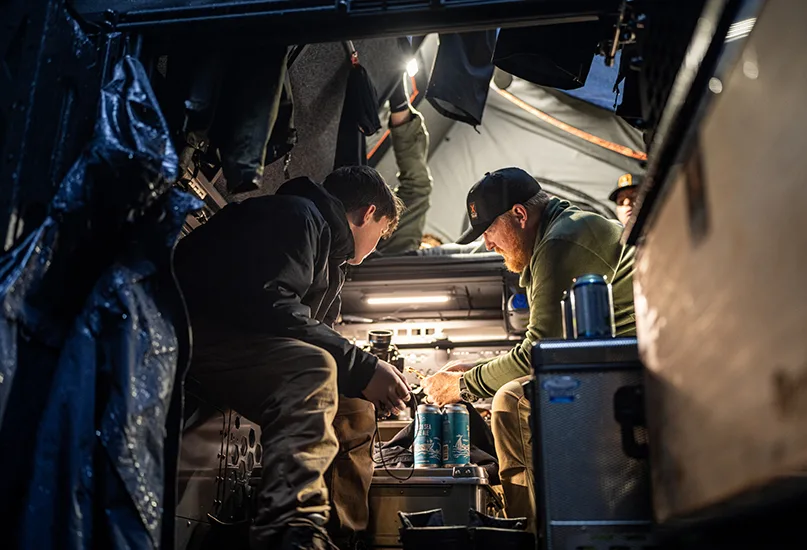
THE STRENGTH OF SUPPLIERS
With a strong emphasis on high-quality products, Alu-Cab continues to lean on the strength of the local supplier network wherever possible.
Indeed, most of its materials and components are procured by nearby vendors whilst harder-to-source supplies are acquired from overseas partnerships to ensure the company can continue to offer best-in-class products to its consumers.
“Our purchasing emphasis is on using high-quality materials, such as aluminium which is chosen for its lightweight nature, durability, and corrosion resistance.
“We work with bespoke suppliers for specific components, such as a unique canvas coating for our products and laser-cut aluminium for precise specifications,” emphasises Shaun Leibowitz, Purchasing Manager.
Given that quality is a major focus throughout the manufacturing process, Alu-Cab also leverages a large team of quality controllers who inspect incoming components across every step of production.
“Products prone to leaks, like our tents, are pressure tested and sprayed with water to ensure they are sealed properly before being boxed and shipped,” Leibowitz exemplifies.
The company additionally expects its suppliers to meet and uphold high ethical standards, maintaining the same criterion as other industry players, including requirements related to human rights, environmental responsibility, and quality.
“In essence, our supply chain is characterised by a strong emphasis on in-house manufacturing, quality control at every stage, a global distribution network supported by a wide array of dealers, and a commitment to continuous improvement based on customer feedback and operational efficiency,” he surmises.
“In essence, our supply chain is characterised by a strong emphasis on in-house manufacturing, quality control at every stage, a global distribution network supported by a wide array of dealers, and a commitment to continuous improvement based on customer feedback and operational efficiency”
Shaun Leibowitz, Purchasing Manager, Alu-Cab
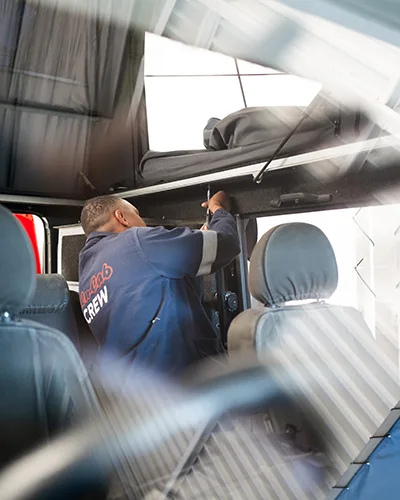
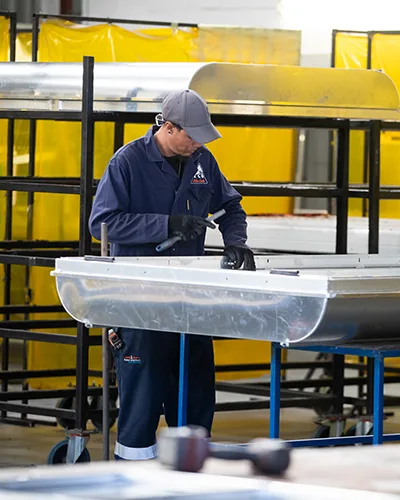
OVERCOMING GLOBAL COMPLEXITIES
A comprehensive and steadfast supplier network has provided Alu-Cab with a solid foundation to grow its global footprint and sufficiently overcome any obstacles that arise.
For instance, when meeting the demands of its Australian customer base, the company has faced significant logistical difficulties over the years. However, by expanding its vast supplier network further, it is able to sufficiently unlock this key market.
“The Australian market has never performed as we expected, largely due to partnerships and brand visibility. By launching our own venture with like-minded individuals there, we can control the brand, customer service, product distribution, and pricing – ensuring greater competitiveness and a better customer experience,” Leslie reveals.
Similarly, challenges have also arisen in the form of the recent US export tariffs, which have had a major impact on Alu-Cab, forcing it to rethink its global operations and evaluate how it maintains international factory volumes.
“We’ve had to innovate in terms of our market presence and dealer network growth – both inside and outside North America. The tariffs remain a moving target, but collaborating with our US partners has helped mitigate their impact on global exports,” Leslie affirms.
“We’re making products more manufacturing-friendly and reducing labour times and costs to maintain pricing competitiveness”
Warwick Leslie, CEO, Alu-Cab
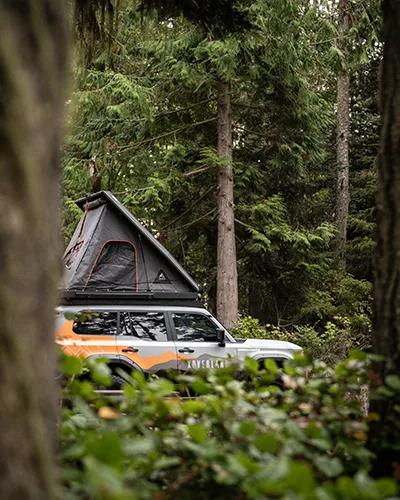
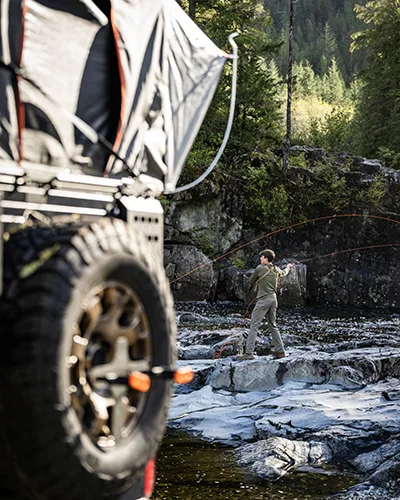
FORGING THE RIGHT PATH
Alongside its devoted staff base, Alu-Cab’s sustained loyalty to local initiatives is equally admirable.
Ensuring the company stays on track in this regard is Michael Dix, CSI Coordinator, whose evolving role demonstrates Alu-Cab’s long-term commitment to the communal responsibilities and support.
“Managing our corporate social investment (CSI) efforts has been my responsibility since joining Alu-Cab – the first dedicated position of its kind here.
“Since 2023, we’ve supported impactful initiatives, including equipping the Freshwater Research Centre’s Ford Ranger vehicles with a Contour Canopy and load bars for fieldwork in tough conditions,” he tells us.
On top of this, Alu-Cab has aided National Park Rescue in its mission to protect Africa’s parks by upgrading the company’s Land Rover Defender 110 with an Icarus Roof Conversion, awning, and mobile campsite gear vital for anti-poaching operations.
Elsewhere, Alu-Cab’s long-standing partnership with Endangered Wildlife Trust is a key example of the company’s commitment to community upliftment.
Indeed, it provides the trust with canopies, campers, and awnings – proving vital in emergencies like the rescue of 84 vultures from poisoning, where Alu-Cab’s Canopy Camper served as a bush clinic.
Earlier this year, the company’s Founder, Jeremy Bergh, made a considerable personal investment into the Karoo Donkey Sanctuary – Africa’s largest donkey rescue and rehabilitation centre – to amplify its mission of rescuing animals.
“Beyond these, we’ve backed other CSI programmes like donating Ammo, a Dutch Shepherd dog now assisting the Thornybush Nature Reserves K9 Anti-Poaching Unit in tracking poachers,” Dix outlines.
Looking ahead to the remainder of 2025 and into the new year, Alu-Cab is progressing its vision of expansion, introducing specialist products to certain territories that are lacking resources in order to compete with local and imported goods.
“We’re making products more manufacturing-friendly and reducing labour times and costs to maintain pricing competitiveness.
“Alu-Cab is also assessing dealer-friendliness and how easy our products are to install, continuing consolidation to improve our current offering and launching new key products,” Leslie closes optimistically.



